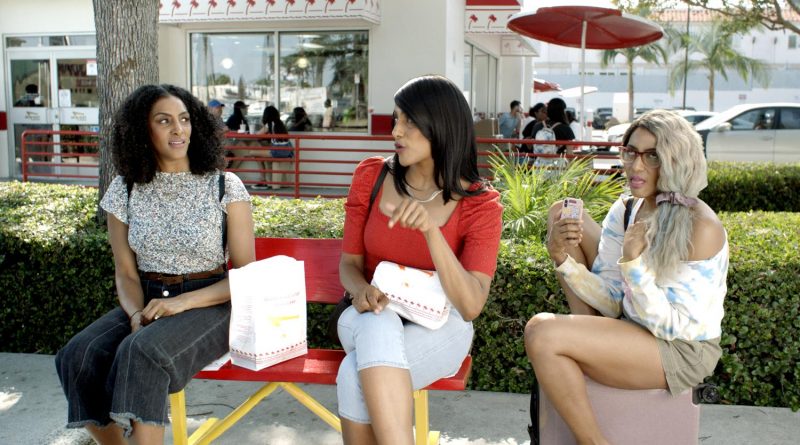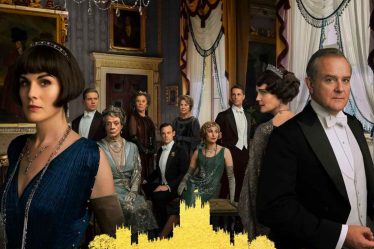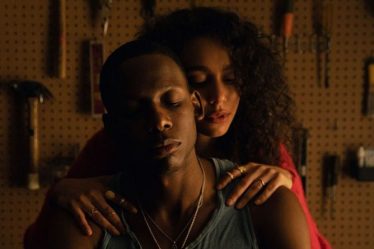
As a hybrid documentary, Sell/Buy/Date is one freaky little non-movie, or what ‘I-can-do-it-all’ poster gal, writer/director/producer/performer Sarah Jones calls an ‘unorthodoc’. Sell/Buy/Date considers how the sex industry is at the intersection of race, feminism, power, and money, through the lens of one Black woman with many voices seeking to better understand sex work. The Tony Award-winning playwright and performer made her first splash with her one-woman play Bridge and Tunnel, for which she won a a Special Tony Award in 2006. Growing up, she was inspired by Lily Tomlin, John Leguizamo, and Tracy Ullman. As an actress, she recently co-starred in the Netflix dramedy series On the Verge, and appeared in Marriage Story and Broad City. Now she is interpreting for the big screen what started out as the one-woman play Sell/Buy/Date, which was a show inspired by the real-life experiences of people affected by the sex industry.
Those savvy about the stage play will find the film considerably altered. Instead of the entirety of the story being delivered by the collection of finely crafted characters created by Jones, she uses herself and four of her favorite characters to serve as hosts on a journey in which she interviews members of the sex work industry about their experience, and considers various perspectives on decriminalization of sex work in the US and around the world. The film, which is part scripted narrative, part documentary, shows Jones grappling with the controversy in which she was called out for representing perspectives as a civilian on the outside, effectively leaving those living as sex workers outside the conversation. That kerfuffle led to several people, including Laverne Cox, departing the project. Since historically representations of sex work in film and tv have been far removed from the reality of the experience, in order to make a fair, considered film, it was essential for Jones to give voice to real people inside of and directly impacted by the industry.
Her alternative personalities in tow, Jones travels around the country speaking to various professionals about their experience, their opinion about decriminalization, and if they feel liberated and autonomous in their work. It is little surprise that the continuum on the spectrum from freedom to servitude is directly related to race and economics. One pole dance artist and former porn performer Amy Bond, a white woman born into the Mormon faith, felt a sense of relief and freedom when she shot her first porn scene at 19. It was the first time she felt her value was not predicated on her purity. BDSM educator and sex worker Alice Little, who is a young, blonde white woman, gives Jones a tour of The Chicken Ranch, the brothel where she has billed over a million dollars in one year. A proponent of decriminalization, she mentions that the owners of brothels make the lion’s share of money from sex work happening on their premises, but Little chocks up the fact that only one owner is female by saying ‘there’s a lot of change that still needs to happen’.
To read this review in its entirety, go to AWFJ.org HERE.



